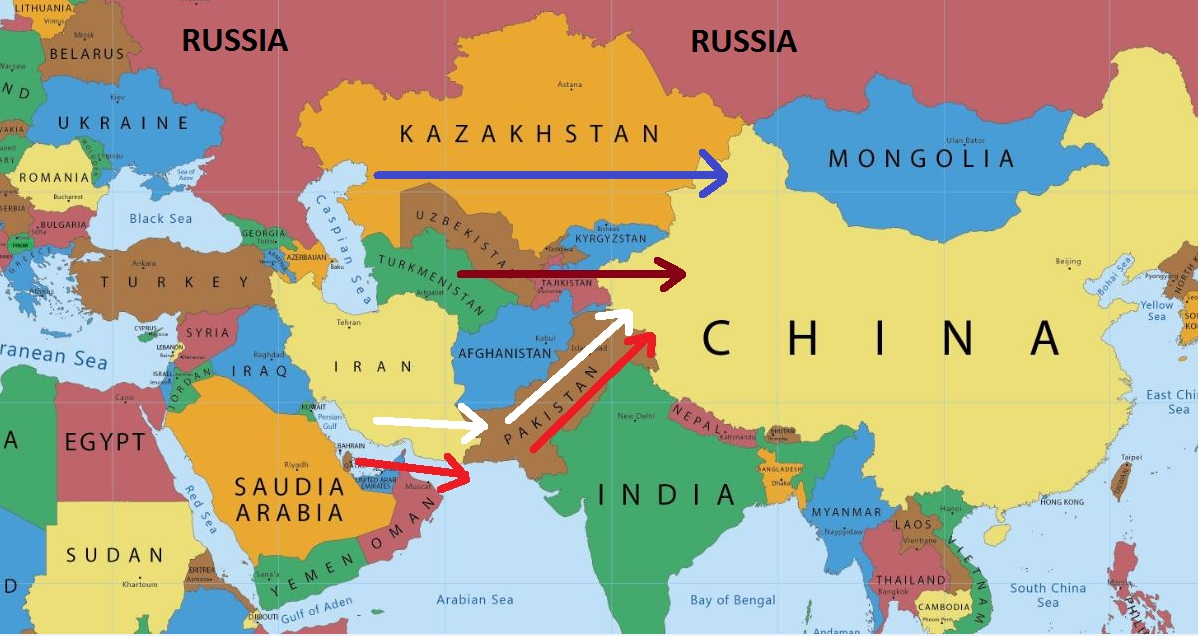Can China Afford to Finish the War in the Middle East?
On January 20 2016 the Chinese President visited Saudi Arabia, where agreements worth billions of dollars were signed between the two countries. The Chinese President also expressed his support to the Yemen government, effectively supporting Saudi Arabia over Iran in the Yemen war. Egypt was the next stop, where the Egyptians and the Chinese not only signed agreements worth billions of dollars, but the Chinese President also expressed his support to another Iranian rival i.e. the Egyptian President al-Sisi. After the two visits in Saudi Arabia and Egypt, which did not pleased the Iranians, the Chinese President traveled to Iran, China’s traditional ally in the Middle East, where the Chinese and the Iranians announced that bilateral trade will reach 600 billion dollars in the next 10 years.
China is probably the ideal country to mediate for a Saudi-Iranian truce, and that was clear from the three trips of the Chinese President last week. For the Saudis and the Iranians, Russia is a competitor in the oil and gas markets, while the United States not only is demonized in the Muslim world, but it has also dramatically decreased its imports from the Persian Gulf. On the contrary the Chinese are the big customer of the Persian Gulf, and both the Saudis and the Iranians are looking at them in order to boost their exports.
After all, both the Arabs and the Iranians could use Pakistan to send their oil and gas to China. If the Chinese can buy reasonable amounts from both, in order to keep both of them happy, a main cause of terrorism would disappear. There is still the issue of the TAPI pipeline (Turkmenistan-Afghanistan-Pakistan-India) promoted by India and Turkmenistan, and supported by the US, which is attacked by both the Arabs and the Iranians. And there are many other issues. But if the Chinese manage to buy a lot in order to keep happy both the Arabs of the Gulf and the Iranians, but also the Turkmen and the Kazakhs, and at the same time they include Turkey, Pakistan and Afghanistan in the New Silk Roads, which means billions of dollars in investments, a peace could be reached.
Map 1

The problem is that peace would cost the Chinese trillions of dollars in oil and gas imports, but also in infrastructure, in order to keep all the Muslim World happy. And the Chinese economy is already a bubble. But if you want peace you got to pay for it. . At the end of the day whether you will have peace or not depends on whether you can afford it, because peace does not come cheap.
The truth is that peace does not only depend on how China will spend her money. It also depends on the European Union, Japan, and all the main importers of raw materials. They would all have to base their purchases on how to keep all the countries exporting raw materials happy, and not on where they can find the best prices. But China is counting on the Middle East countries more, in the same way the Europeans are counting on Russia, and the Americans are counting on Canada, Mexico and Latin America. Therefore for the Middle East wars maybe China can play a greater role.
Articles
“China, Iran Agree to Expand Trade to $600 Billion in a Decade”, January 2016
http://www.bloomberg.com/news/articles/2016-01-23/china-iran-agree-to-expand-trade-to-600-billion-in-a-decade
“Saudi Aramco – Sinopec – CNPC”
https://iakal.wordpress.com/2016/01/21/saudi-aramco-sinopec-cnpc-january-2016/
“China's Xi visits Egypt, offers financial, political support”, January 2016
http://www.reuters.com/article/us-egypt-china-idUSKCN0UZ05I?feedType=RSS&utm_source=The+Daily+News+Brief&utm_campaign=0943f132ea-Morning_Email1_21_2016&utm_medium=email&utm_term=0_b4a0944fbd-0943f132ea-121020893








